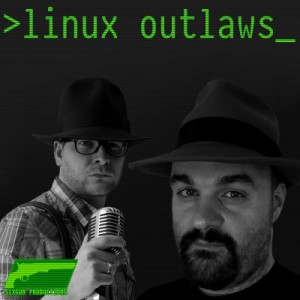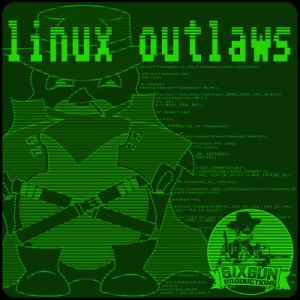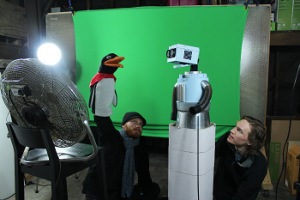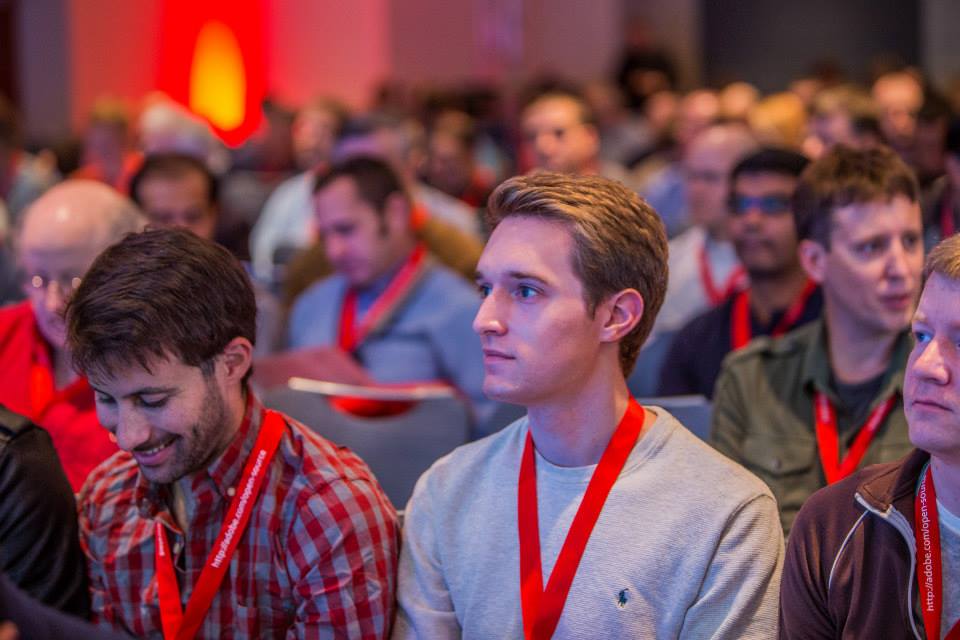The introduction was inconspicuous enough. Philip Newborough, the lead developer for CrunchBang, tweeted to me: “They’re talking about you on LO.”
“LO?”
A few questions and a search or two later, I was at a Google Hangout where Dan Lynch, an English musician in the band 20lb Sounds from Liverpool, and Fabian Scherschel, a German tech journalist and rabid Pittsburgh Penguins fan, were discussing the FOSS issues of the day; Lynch with his subtle and deadpan delivery serving as an anchor and foil for Scherschel’s occasional — and hilarious — flights-of-ranting-fancy.

Photo by Fabian Scherchel – http://sixgun.org/
Linux Outlaws is not for shrinking violets — it is portrayed on its site as “very much like listening to two friends sitting in a pub, having fun and talking about things they find interesting.” However, I think that sells the show short — it is far more entertaining than that (and when they say, “Not recommended for the faint of heart or the ignorant,” they mean it). Always straightforward and honest, always informative and humorous, Linux Outlaws never met an issue they couldn’t tackle with their unique brand of wisdom, insight and jocularity.
Now, Lynch and Scherschel — Dan and Fab to their relatives, friends, and a wide listener base — are at the crossroads. Recently, with the episodes well into the 360s in number, they decided to finish out the year with Linux Outlaws and ride off into the sunset.
I was able to catch up with them and ask where they’ve been, where they’re going, and other items of interest.




 In a full-page ad in “The New York Times” on Nov. 9, 2004, the Mozilla project announced the release of Firefox 1.0, the first full version of the browser which has become the third most popular way to navigate the Internet, behind Google Chrome and Internet
In a full-page ad in “The New York Times” on Nov. 9, 2004, the Mozilla project announced the release of Firefox 1.0, the first full version of the browser which has become the third most popular way to navigate the Internet, behind Google Chrome and Internet 




